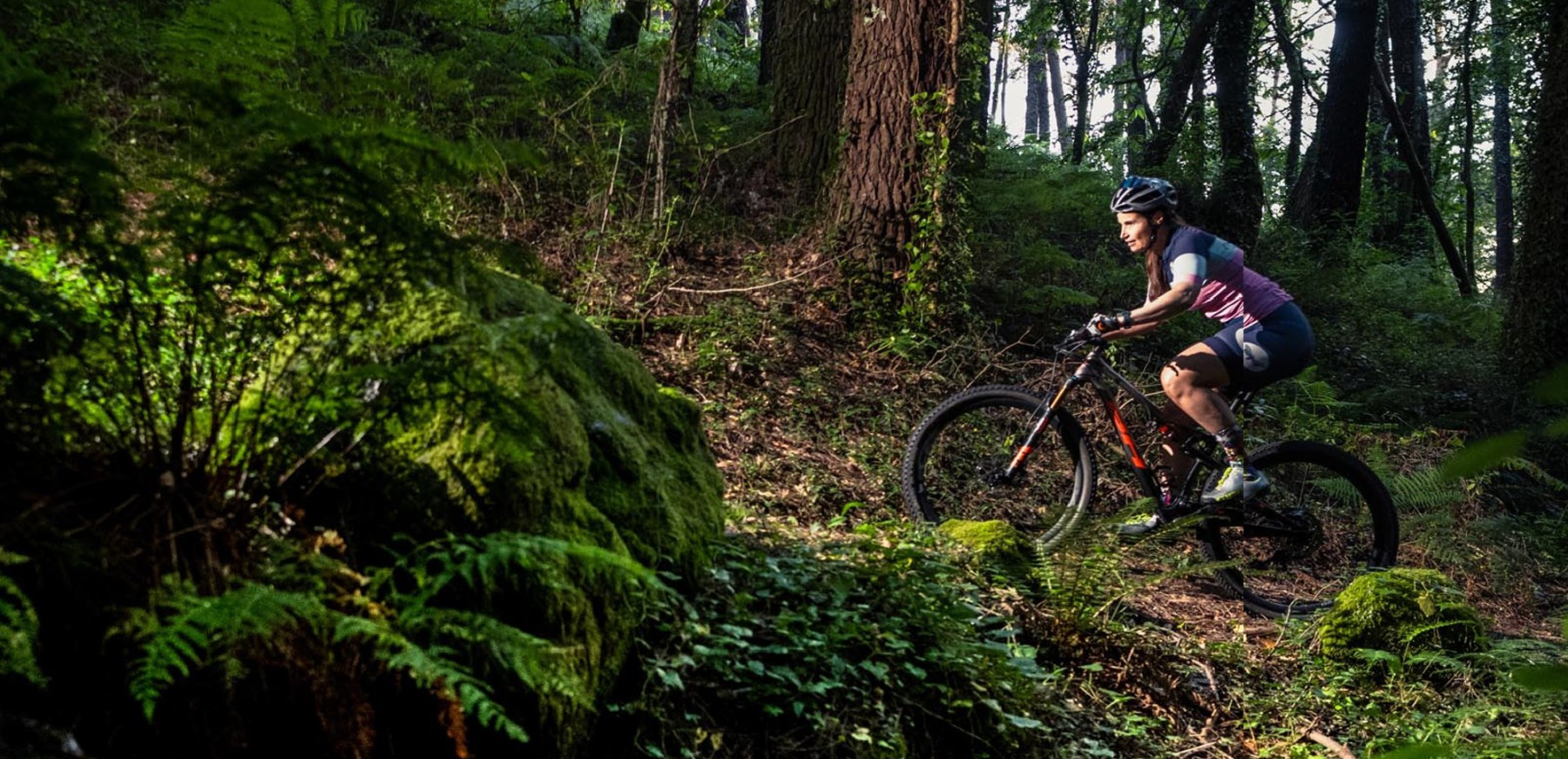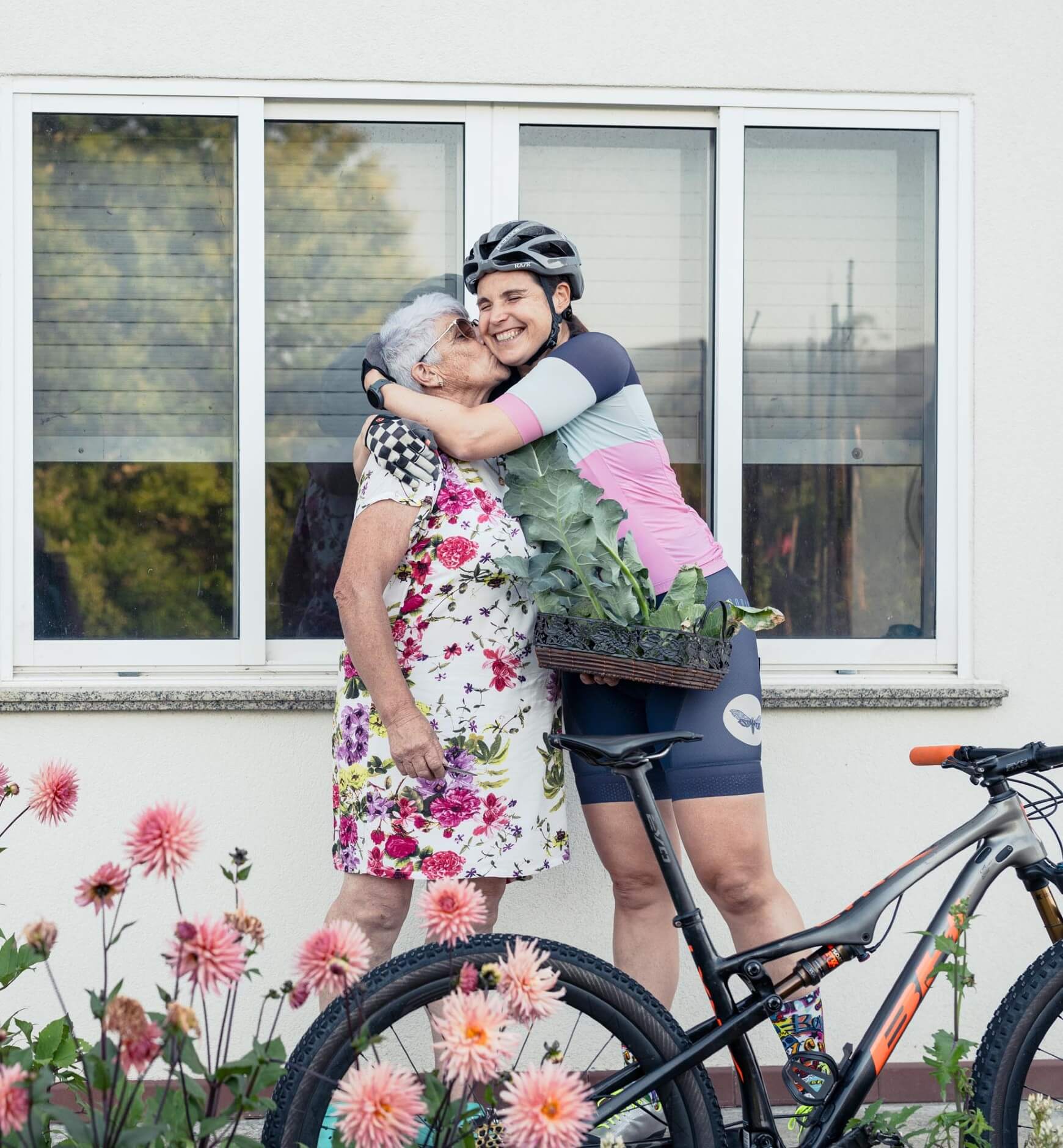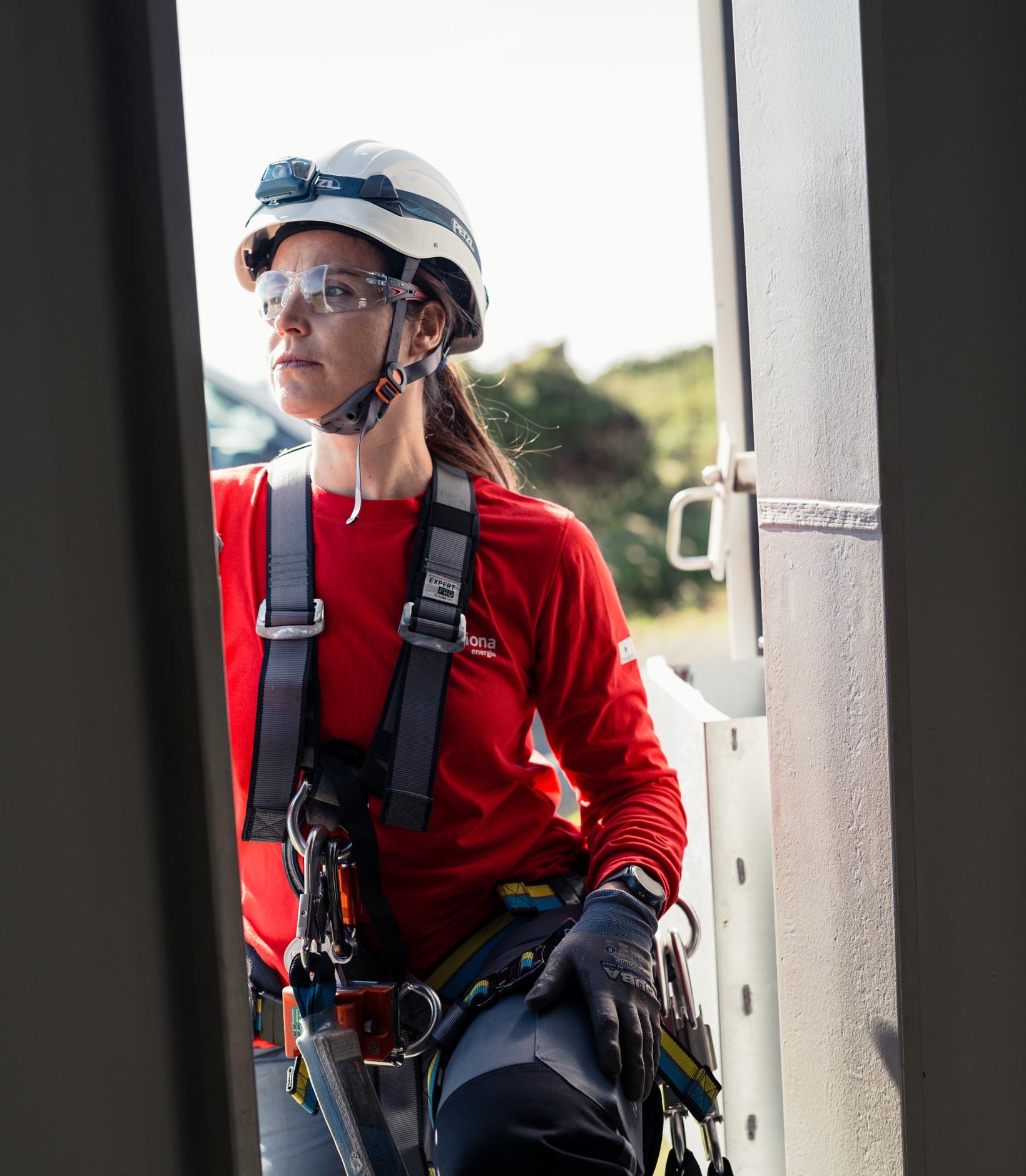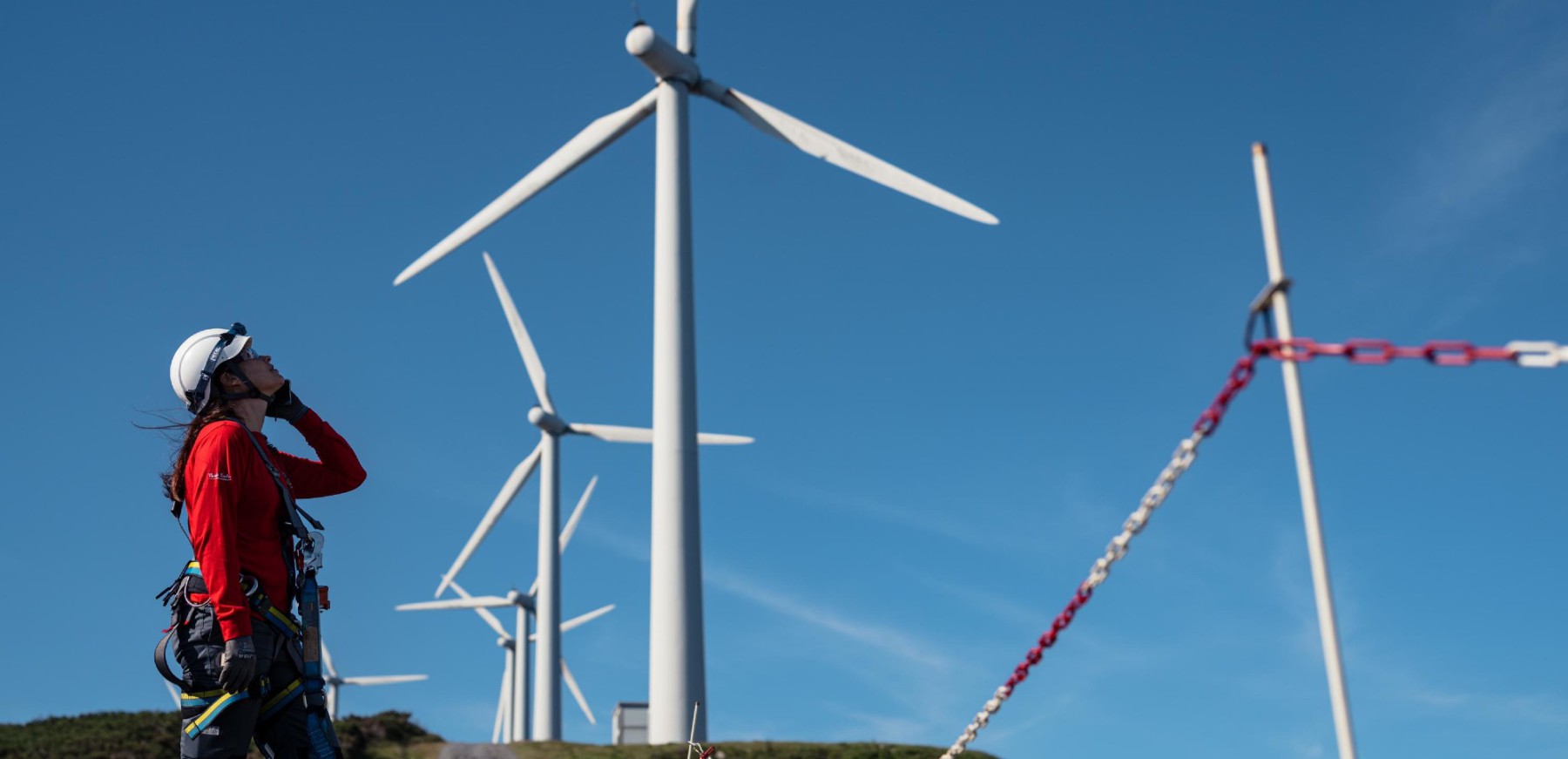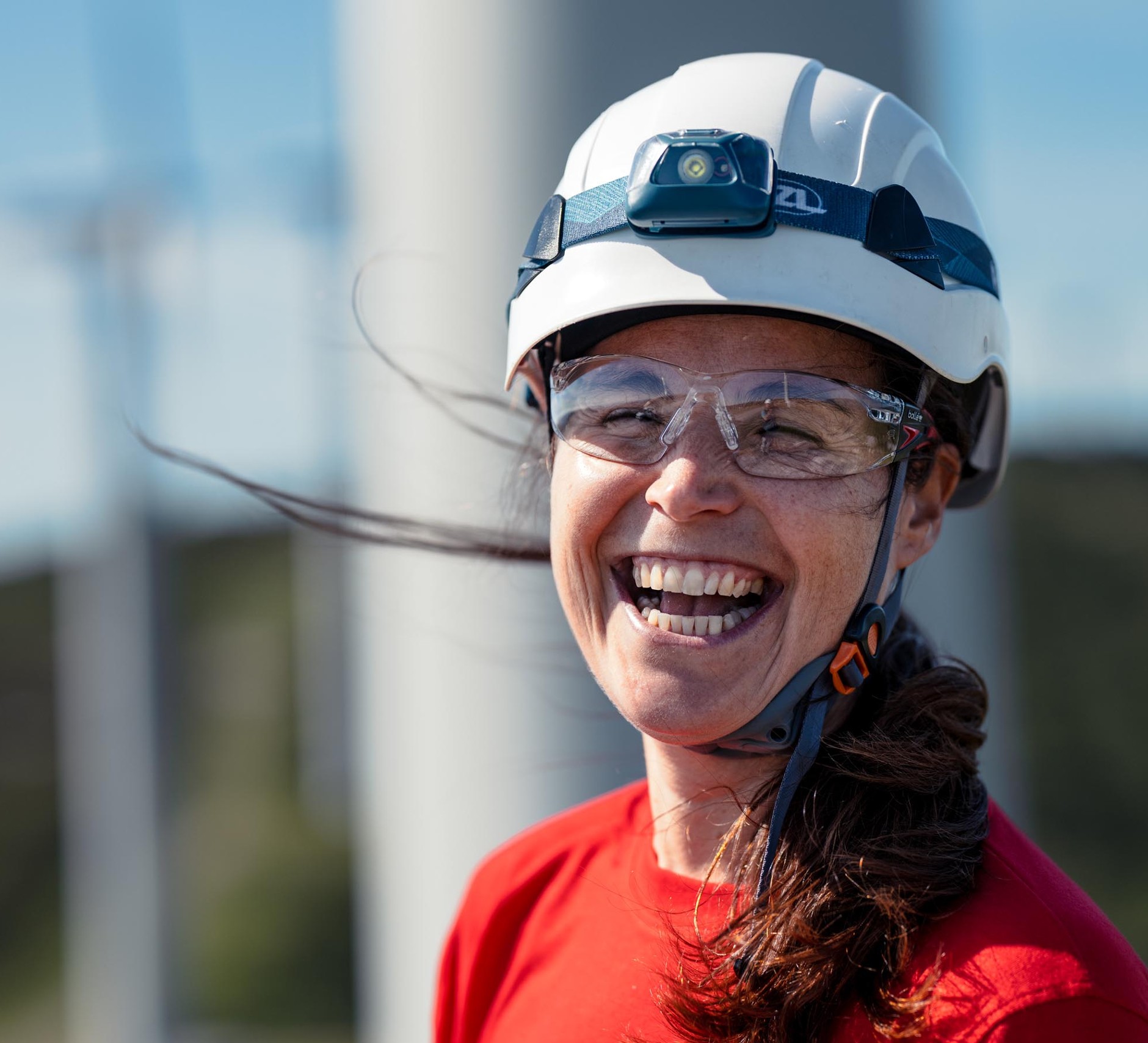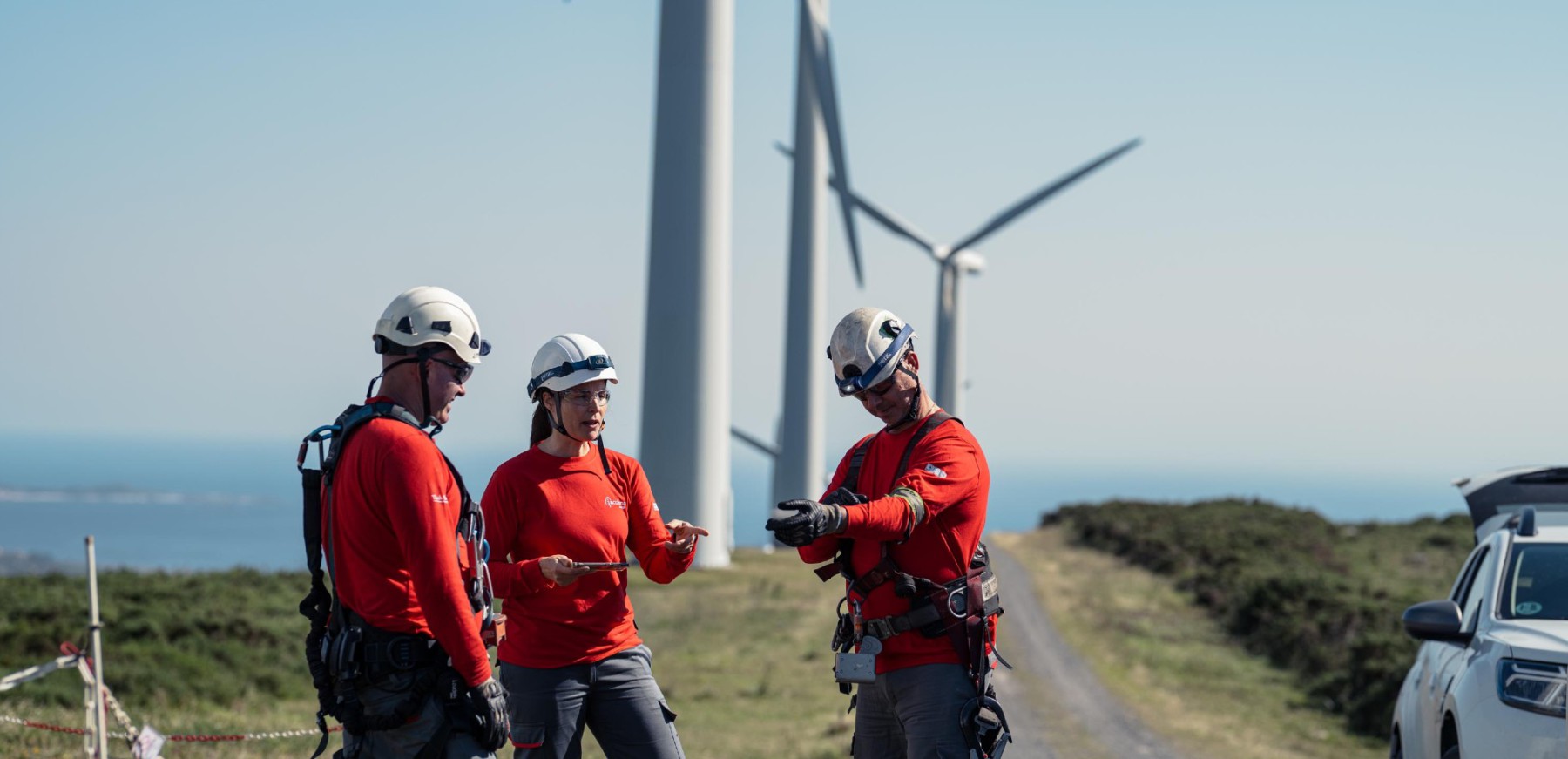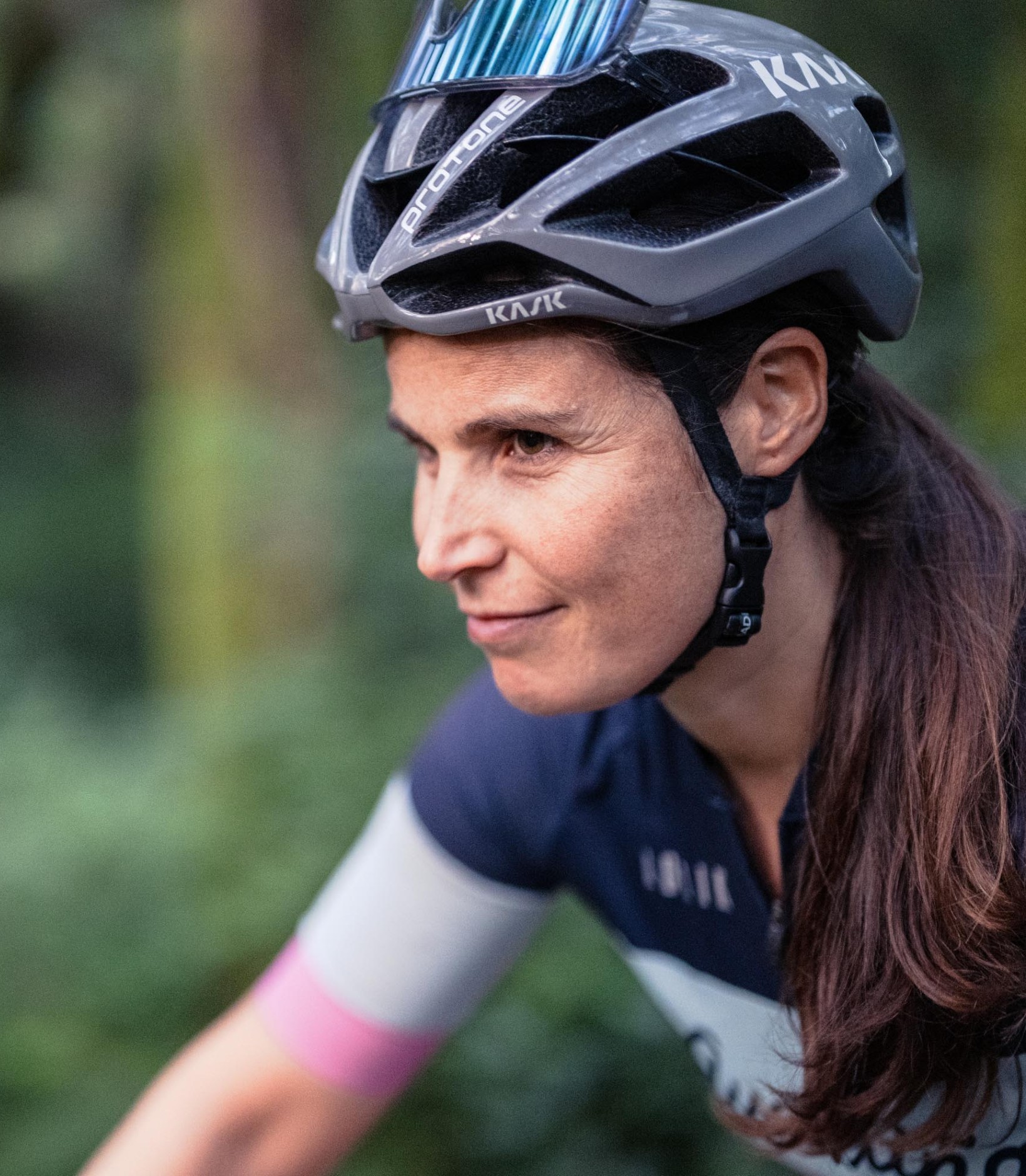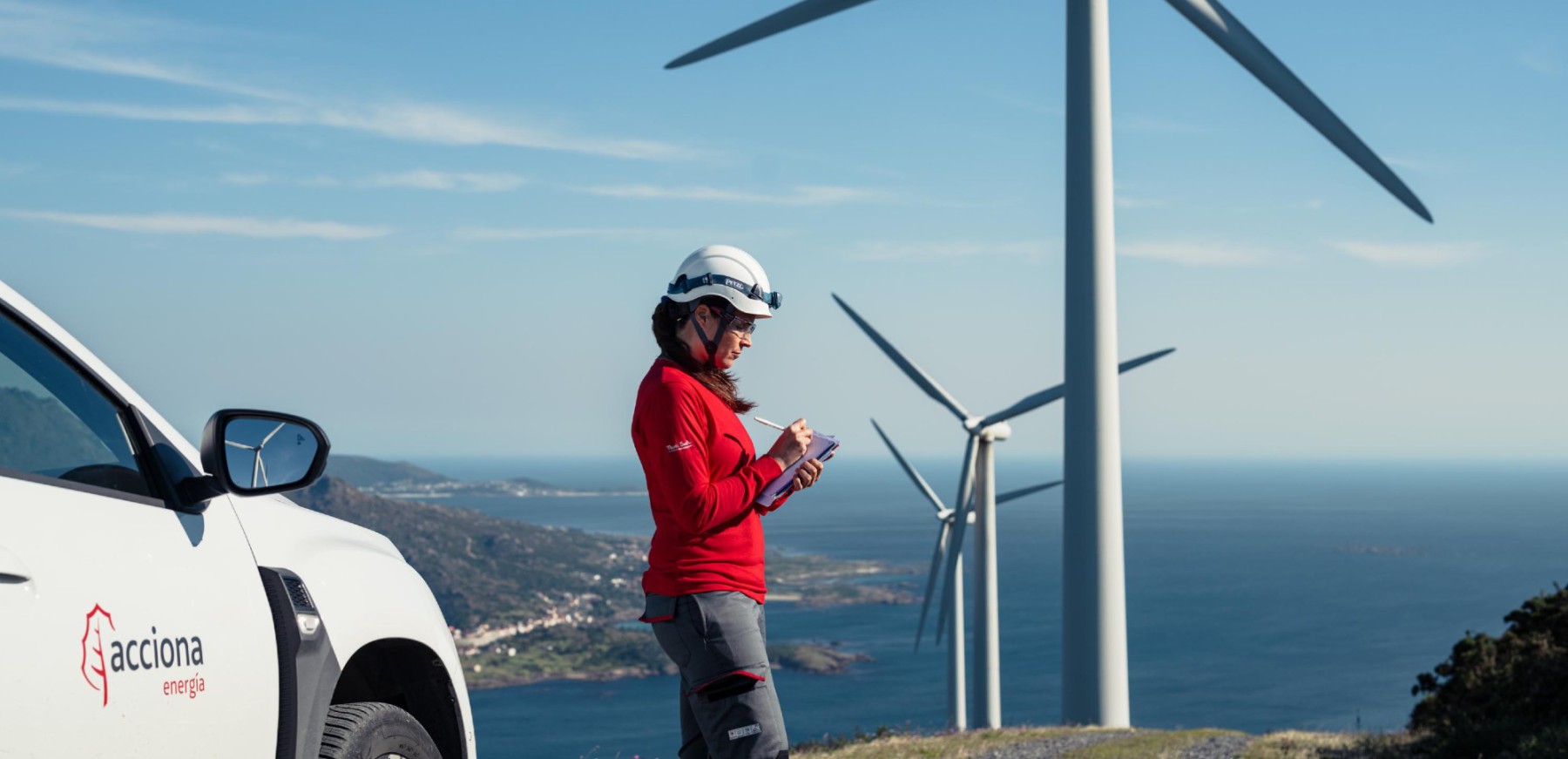In general, although there were few female engineers in the program, Silvia did not notice any discrimination at work because she was a woman, apart from a few details. “I think the reception was very good, but you also encounter certain comments. In general, we are used to hearing ‘No, you don’t take that, I’ll do that, you don’t have the strength,’ and in the end, you end up believing it.”
Climbing new peaks
Eventually, around 2015, Silvia ended up heading the predictive maintenance department, from where she supervised work at ACCIONA Energy’s wind farms throughout Spain, and some abroad, such as Poland and Chile. Our interviewee explains that the process of taking on responsibilities was gradual and natural: “I liked to organize myself at work when you went around. We became a group of twelve people and, of course, we worked in pairs, but somehow, we had to organize the tasks and talk to the people in charge of the parks. And I took on that task.” She also used her writing skills to write reports.
Sometimes in this section, we come across people who have a very well-defined career plan, with very clear goals. In Silvia’s case, she limited herself to working with tenacity and being present when an opportunity arose, often with some apprehension: “They asked me if I was interested in applying and passing the process for park manager and, well, I applied, but I didn’t have it all my own way. I was a little afraid and I thought: ‘There will be things in which I will be very lame or not up to the task.’” She doesn’t put it in those terms, but perhaps it could be described as imposter syndrome.
Fortunately, she did not listen to those inner voices and, after consulting with her family, who encouraged her to take the step, she managed to overcome all the phases of the hiring process. In 2020 she became head of the five wind farms that make up the Bonus Coruña park, in the town of Mazaricos, a stone’s throw from her family.
“In a talk I gave at a high school on Women’s Day, I told the girls, ‘There are no limits. You set the limits.’”
